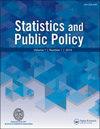马萨诸塞州医疗改革降低了死亡率吗?根据随机化推理
IF 1.5
Q2 SOCIAL SCIENCES, MATHEMATICAL METHODS
引用次数: 39
摘要
在较早的一篇文章中,Sommers、Long和Baicker得出结论,马萨诸塞州的医疗改革与死亡率的显著下降有关。我复制了这项研究的发现,并给出了Sommers、Long和Baicker报告的参数估计的p值,这些估计基于一种替代的、有效的推断方法,即随机化推断。我发现,当p值基于随机化推理方法时,Sommers、Long和Baicker对治疗效果的估计在统计上并不显著。事实上,Sommers、Long和Baicker通过随机化推理方法得出的估计值的p值在0.22到0.78之间。因此,作者关于马萨诸塞州医疗改革与死亡率下降有关的结论是不合理的。Sommers, Long和Baicker的分析在很大程度上没有提供关于改革对死亡率的真正影响的信息,因为它没有足够的统计能力来检测合理的效应大小。本文章由计算机程序翻译,如有差异,请以英文原文为准。
Did Massachusetts Health Care Reform Lower Mortality? No According to Randomization Inference
ABSTRACT In an earlier article, Sommers, Long, and Baicker concluded that health care reform in Massachusetts was associated with a significant decrease in mortality. I replicate the findings from this study and present p-values for the parameter estimates reported by Sommers, Long, and Baicker that are based on an alternative and valid approach to inference referred to as randomization inference. I find that estimates of the treatment effects produced by Sommers, Long, and Baicker are not statistically significant when p-values are based on randomization inference methods. Indeed, the p-values of the estimates reported in Sommers, Long, and Baicker derived by the randomization inference method range from 0.22 to 0.78. Therefore, the authors’ conclusion that health reform in Massachusetts was associated with a decline in mortality is not justified. The Sommers, Long, and Baicker analysis is largely uninformative with respect to the true effect of reform on mortality because it does not have adequate statistical power to detect plausible effect sizes.
求助全文
通过发布文献求助,成功后即可免费获取论文全文。
去求助
来源期刊

Statistics and Public Policy
SOCIAL SCIENCES, MATHEMATICAL METHODS-
CiteScore
3.20
自引率
6.20%
发文量
13
审稿时长
32 weeks
 求助内容:
求助内容: 应助结果提醒方式:
应助结果提醒方式:


